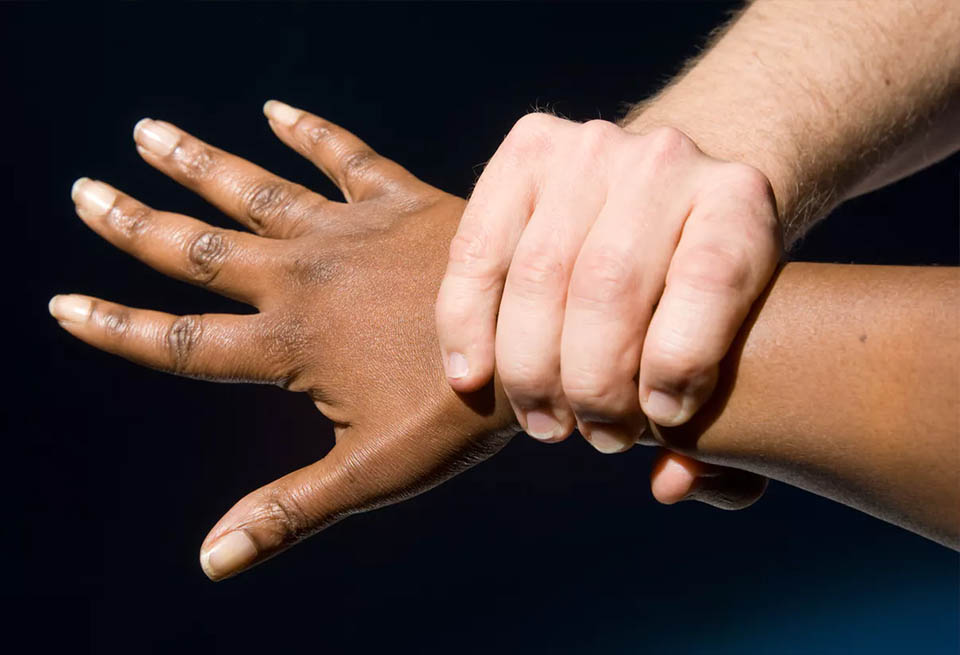Our Work

Domestic/Intimate Partner Violence
Domestic violence (also called intimate partner violence or IPV, or dating violence) is a pattern of behaviors used by one partner to maintain power and control over another partner in an intimate relationship.
1 in 3 women and 1 in 4 men have been victims of physical violence by an intimate partner within their lifetime.
Domestic violence does not discriminate. Anyone of any race, age, sexual orientation, religion or gender can be a victim – or perpetrator – of domestic violence. It can happen to people who are married, living together or who are dating. It affects people of all socioeconomic backgrounds and education levels.
Domestic violence includes behaviors that physically harm, arouse fear, prevent a partner from doing what they wish or force them to behave in ways they do not want. It includes the use of physical and sexual violence, threats and intimidation, emotional abuse and economic deprivation. Many of these different forms of domestic violence/abuse can be occurring at any one time within the same intimate relationship.
Services for domestic violence survivors include:
- Trauma-informed individual and group counseling in English and Spanish for adult survivors,
- Individual counseling for children, ages 5 and up, who have witnessed domestic violence or sexual assault involving a parent or guardian; and teens, ages 13 and up, who are the victim of sexual assault or dating violence,
- Court advocacy within the Henrico County General District Court and Juvenile and Domestic Relations Court to assist persons seeking protective orders, and
- Emergency shelter to domestic violence survivors in imminent danger.

Sexual Violence
Sexual violence is defined as a sexual act committed against someone without that person’s freely given consent.
Every 98 seconds, an American is sexually assaulted.
1 out of every 6 American women have been the victim of an attempted or completed rape in her lifetime.
1 out of every 10 rape victims is a male.
(Statistics came from RAINN website)
Sexual violence can take many different forms and be defined in different ways, but one thing remains the same: it’s never the victim’s fault.
Services for survivors of sexual assault and intimate partner sexual violence include:
- Trauma-informed Individual and group counseling in English and Spanish to adult survivors
- Services to youth, ages 13 and up, who are the victim of sexual assault or dating violence,
- Equine-assisted therapy groups for male and female survivors of sexual assault,
- Support groups for incarcerated female survivors of sexual assault at Henrico East and West Jails,
- Court advocacy within the Henrico County General District Court and Juvenile and Domestic Relations Court to assist persons seeking protective orders, and
- Emergency shelter to sexual assault survivors in imminent danger.

Human Trafficking
Human trafficking occurs when force, fraud or coercion is used to control another person for the purpose of engaging in commercial sex acts or soliciting labor or services against her/his will.
In 2015, 4,136 cases of sex trafficking were reported in the state of Virginia. The greater Richmond area’s proximity to major highways, I-95 and 64, make it a hub for trafficking activity. In fact, the Department of Justice and the National Center for Missing and Exploited Children lists Richmond as one of the top 20 jurisdictions for sex trafficking in the country.
Traffickers use violence, threats, lies, debt bondage, and other forms of coercion to compel adults and children to engage in commercial sex acts against their will. Under U.S. federal law, any minor under the age of 18 years induced into commercial sex is a victim of sex trafficking—regardless of whether or not the trafficker used force, fraud, or coercion.
Services include:
- Trauma-informed individual and group counseling in English and Spanish for men, women and teen human trafficking survivors.
- Emergency and transitional shelter for adult human trafficking survivors.
To access our human trafficking program, please call 833-827-2270.
Community Outreach & Education
We are working to reduce the incidence of violence within our community by creating an environment in which domestic violence, sexual violence, and human trafficking are openly discussed, information about how to access services and support survivors is readily available, and healthy relationships are modeled and encouraged.
We believe firmly in the power of education, both individually and within the community.
Survivors often have strong feelings of shame, self-blame, fear, anxiety, and powerlessness. Many are reluctant to disclose their trauma to friends or family due to embarrassment, fear of judgment or not being believed.
There are still many myths and misconceptions around domestic violence, sexual violence, and human trafficking, and we believe our work includes educating the community to share the facts around these important issues. The more people understand the issues, and our comprehensive offering of services, the more survivors we can help as a community.
Unfortunately, there is still a fair amount of stigma surrounding domestic violence, sexual violence, and human trafficking. The more people who understand the complexity of these issues, as well as the many underlying causes, the more we can help shift mindsets as a society.
As a member of the community, you can help us share this information by inviting us to speak at your business, place of worship, middle/high school, or networking group. Help us have these conversations. You never know who you might help.
We are also hopeful that education to young men and women may serve to prevent them from entering into or continuing in abusive relationships. It is vital that young people be taught what consent means and about healthy communication within their dating and intimate relationships.
We are available to speak to any size group, big or small, and can tailor our presentation to specific issues that your organization may be interested in discussing.
For more information about our education and outreach activities, please call (804) 249.9470 x120.
To request a speaker or schedule a presentation, please fill out our Outreach Request Form.
